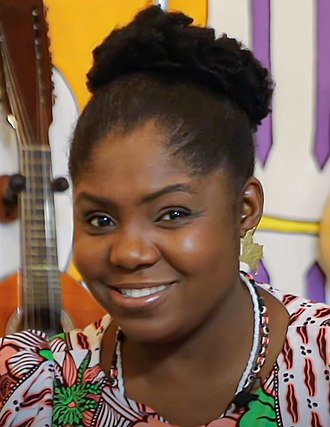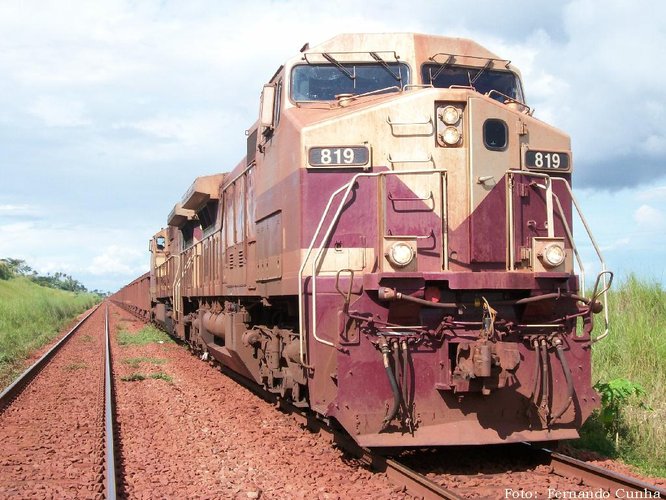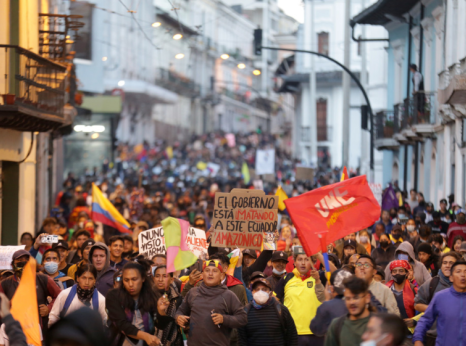This month, we update you on developments in Colombia, Brazil, Venezuela, Ecuador, and Chile
In Colombia, a new government has been elected: Gustavo Petro will become the first radical left-wing President of Colombia in its history, and his Vice-President, Francia Marquez, the first black coloured woman in this office. Also, Amnesty International has issued a new Urgent Action for the human rights defender organization FEDEPESAN, and Colombia’s Truth Commission has published its final report. In Brazil, Amnesty International and 17 Brazilian NGOs have issued a petition to the state’ Public Prosecutors and the President of the National Council of Justice to hold the police responsible for violations of human rights for killings committed in 2021. Amnesty International has issued a new Urgent Action for Ecuador, calling on President Lasso to stop criminalizing peaceful protests. In Venezuela, Marino Alvarado and Alfredo Infante, the subjects of an Urgent Action last month, have reached a settlement with Carabobo State Governor, to drop his defamation lawsuit against them. A new constitution is getting ready for approval in Chile.
COLOMBIA
Gustavo Petro was voted in as the first radical left-wing President of Colombia in its history, while his Vice-Presidential running mate, Francia Márquez, is the first Black Colombian to hold this office. As his party won just 20 of 108 seats in the Senate and 28 of 169 seats in the Chamber of Representatives, he will have to negotiate with other parties to pass his government’s legislation.

Francia Márquez, human-rights and environmental activist and lawyer, has promised to give priority to the human rights of women, indigenous and ethnic minorities and environmental rights defenders. They will take office on 7 August.
Amnesty International has issued a new Urgent Action on behalf of the Colombian human rights defender organization FEDEPESAN. On May 31st, four environmental defenders from the Federation of Santander Fishers for Tourism and Environment (FEDEPESAN) were victims of an attack with firearms by unknown people while assessing possible environmental harm in the Magdalena Medio region. We urge the Ministry of the Interior to adopt immediate measures to guarantee the life and right to defend human rights of members of FEDEPESAN. You can take action here
Colombia’s Truth Commission, part of the Peace Accord that ended the civil war with the FARC, has published its final report [pending English version], which has been well-received by President-elect Petro. The report calls for major changes to Colombia’s military and police forces. Military objectives should be re-evaluated, and all human rights violations committed by security forces should be tried by civilian courts. The report called on the nation’s government to regulate the drug trade so that its profits go to government agencies and not drug trafficking groups. It suggests that Colombia restart peace negotiations with the National Liberation Army (ELN), Colombia’s largest remaining rebel groups.
BRAZIL

Business and Human Rights writes: 130 communities living near the railroad carrying iron ore built and operated by Vale report health problems, damage to their houses, pollution, accidents and lack of dialogue. ‘Treated without transparency and ignored by companies such as Vale and the authorities, residents are left only with the adverse impacts and no benefits.’
Amnesty, along with 17 Brazilian NGOs, has issued a petition (Portuguese only) demanding that Brazil’s States’ Public Prosecutors and the President of the National Council of Justice hold the police responsible for violations of human rights. According to the newspaper O Globo, Brazil’s National and State police forces killed 6,133 people in 2021, almost double the number killed in 2015.
ECUADOR

Protests against the Government’s economic policies paralysed much of Ecuador in June. The Government decreed a state of exception in six provinces. Talks between the Government and indigenous leaders have begun to address the issues raised by the protesters and the state of exception has been lifted.
Amnesty have issued a new Urgent Action calling on President Lasso to stop stigmatising, repressing and criminalising peaceful protests, to disclose the whereabouts of and charges against all detainees, and to release those arbitrarily detained. The action highlights the experience of Leónidas Iza, president of the Confederation of Indigenous Nationalities of Ecuador, who was detained by security forces on 14 June in the province of Cotopaxi. He was held incommunicado and criminally charged with “blockage of public services”, before being released that night.
VENEZUELA
Good news. Marino Alvarado and Alfredo Infante, the subjects of an Urgent Action last month, have reached a settlement with Carabobo State Governor, Rafael Lacava, to drop his defamation lawsuit against them. The organisations they represent published a report exposing possible extrajudicial executions in Carabobo and calling for exhaustive investigations, including chain of command responsibility. The Urgent Action contributed to generating public attention towards the unfair lawsuit and putting pressure on the Governor to reach a settlement instead of pursuing a trial. No further action is required.
VENEZUELAN REFUGEES IN COLOMBIA AND PERU
This article, written for Amnesty by a Colombian anthropologist and independent journalist, highlights the invisibility and discrimination experienced by Venezuelan LGBTIQ+ refugees in Colombia and Peru.
CHILE
The year-long process of drafting Chile’s new constitution has come to an end. The new constitution was submitted to the new elected President Gabriel Boric on Monday 4 July 2022. If the constitution is approved, Chile will be a step closer to abandoning the legacy of former dictator Augusto Pinochet. The project of drafting a new constitution began after the protests that paralysed for over two months during former president Pinera’s term.
All the best,
South America Team – Richard Crosfield (Colombia and Brazil), Carla Torres (Chile and Argentina), and Graham Minter (rest of South America). And please don’t forget that you can follow us on our Facebook page and Twitter.